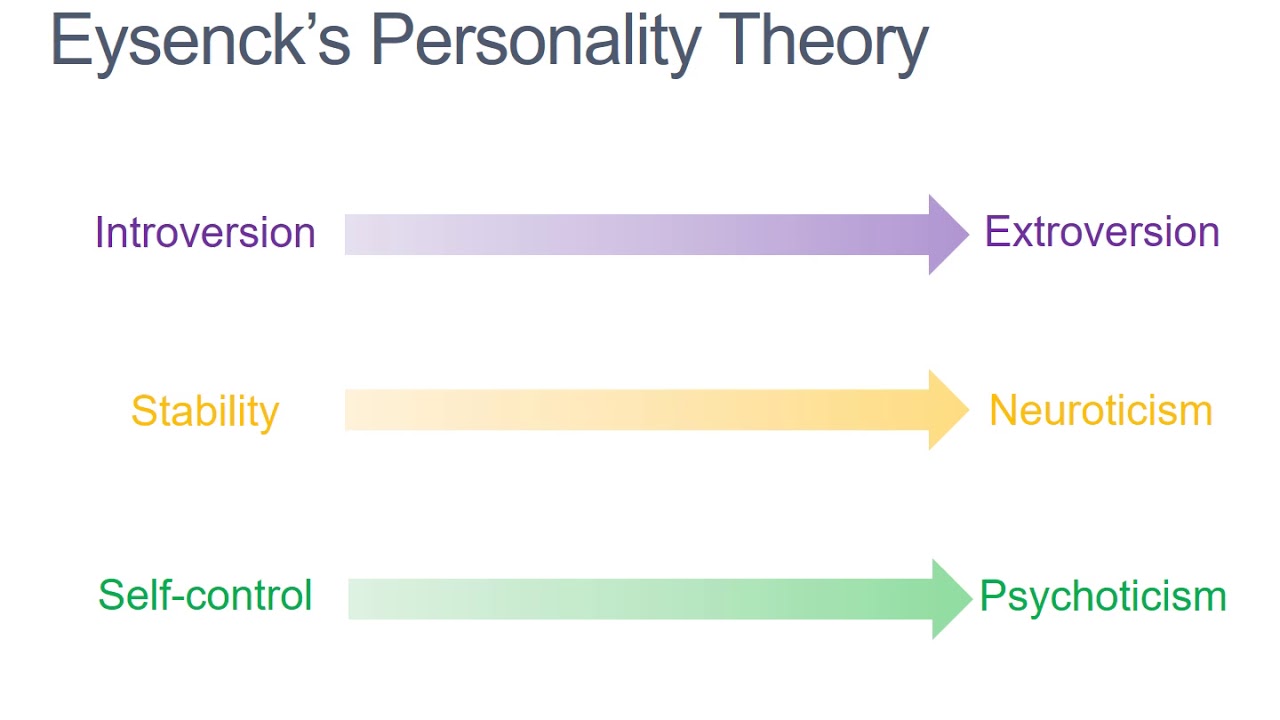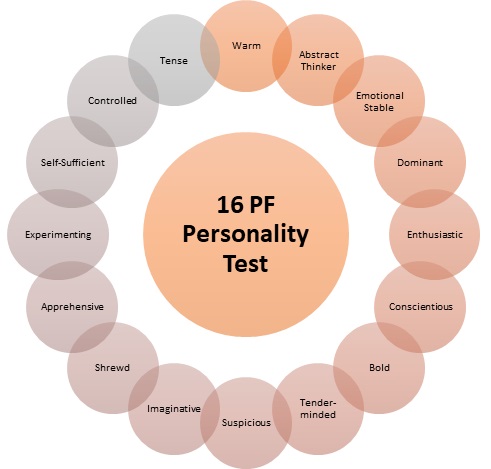Trait Approaches to Personality
5.0(1)
Card Sorting
1/17
Last updated 11:41 PM on 4/15/23
Name | Mastery | Learn | Test | Matching | Spaced | Call with Kai |
|---|
No analytics yet
Send a link to your students to track their progress
18 Terms
1
New cards
Cardinal Traits
= rare traits that dominate your personality
* so intrinsic to one’s personality that the person becomes synonymous with trait
ex. mother teresa = good, charitable
ex. abraham lincoln = honest
* so intrinsic to one’s personality that the person becomes synonymous with trait
ex. mother teresa = good, charitable
ex. abraham lincoln = honest
2
New cards
Central Traits
= main traits that form your personality
* these influence but don’t determine behavior
* found in almost every person
\
ex. honesty, agreeableness, jealousy, etc.
* these influence but don’t determine behavior
* found in almost every person
\
ex. honesty, agreeableness, jealousy, etc.
3
New cards
Secondary Traits
= variable traits, which differ depending on the circumstance/context
\
ex. normally being easy-going, but when under a lot of pressure, you become short-tempered
\
ex. normally being easy-going, but when under a lot of pressure, you become short-tempered
4
New cards
Eysenck’s 3 personality scales
= theory: “everyone falls somewhere on 3 dimensions”
= “personality is biological in origin” (AKA personality comes from genetics)
* Introversion vs. Extroversion
* Stability vs. Neuroticism
* Self-Control vs. Psychoticism
= “personality is biological in origin” (AKA personality comes from genetics)
* Introversion vs. Extroversion
* Stability vs. Neuroticism
* Self-Control vs. Psychoticism

5
New cards
Neuroticism
= broad personality trait dimension representing the degree to which a person experiences the world as distressing, threatening, and unsafe
= trait disposition to experience negative affects, including anger, anxiety, self‐consciousness, irritability, emotional instability, and depression
\
high in this trait = mood fluctuations, unpredictable
= trait disposition to experience negative affects, including anger, anxiety, self‐consciousness, irritability, emotional instability, and depression
\
high in this trait = mood fluctuations, unpredictable
6
New cards
Psychoticism
dimension of personality in Eysenck's dimensions characterized by aggression, impulsivity, aloofness, and antisocial behavior,
\
* indicates a susceptibility to psychosis and psychopathic disorders
\
* indicates a susceptibility to psychosis and psychopathic disorders
7
New cards
the big 5 traits
OCEAN
8
New cards
Openness
one of the big 5 traits
= cautious vs. curious
= how open-minded, imaginative, creative and insightful a person is or can be
= cautious vs. curious
= how open-minded, imaginative, creative and insightful a person is or can be
9
New cards
Conscientiousness
one of the big 5 traits
= careless vs. organized
= individual differences in the propensity to follow socially prescribed norms for impulse control, to be goal-directed, planful, able to delay gratification, and to follow norms and rules
= careless vs. organized
= individual differences in the propensity to follow socially prescribed norms for impulse control, to be goal-directed, planful, able to delay gratification, and to follow norms and rules
10
New cards
Extraversion
one of the big 5 traits
= reserved vs. outgoing
= reserved vs. outgoing
11
New cards
Agreeableness
one of the big 5 traits
= competitive vs. friendly
= competitive vs. friendly
12
New cards
Neuroticism (big five)
one of the big 5 traits
= confident vs. nervous/sensitive
= confident vs. nervous/sensitive
13
New cards
Personality Factors
Cattell identified 16 factors or dimensions of personality:
(see pic)
(see pic)

14
New cards
Type A
pattern of behavior and personality associated with high achievement, competitiveness, and impatience,
15
New cards
Type B
pattern of behavior and personality associated with being easygoing, relaxed, and highly flexible
16
New cards
HEXACO
A model of personality structure positing that human personality traits can best be summarized by 6 broad, independent dimensions:
honesty-humility,
emotionality,
extraversion,
agreeableness,
conscientiousness,
openness to experience
honesty-humility,
emotionality,
extraversion,
agreeableness,
conscientiousness,
openness to experience
17
New cards
Criticism of Trait Theories
1. traits are often poor predictors of behavior (When behavior is broken down to traits, we have no way of knowing how they are actually expressed in life)
2. a change of the environment may alter the expression of a trait. (While an individual may score high on assessments of a specific trait, they may not always behave that way in every situation.)
3. do not address how or why individual differences in personality develop or emerge.
18
New cards
Grit
= passion and perseverance for long-term goals
NOT talent, luck, desire
\
* explains why some achieve more than others
\
\
1. courage → not afraid of failure, resilient
2. conscientiousness → meticulous, careful, strive for excellence!
NOT talent, luck, desire
\
* explains why some achieve more than others
\
\
1. courage → not afraid of failure, resilient
2. conscientiousness → meticulous, careful, strive for excellence!